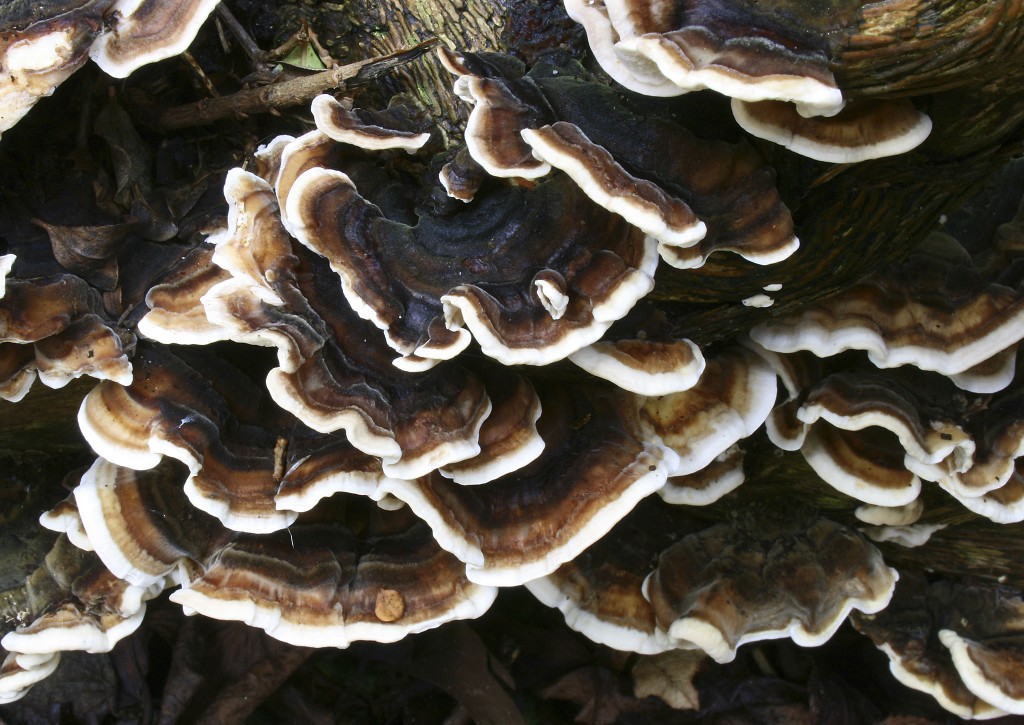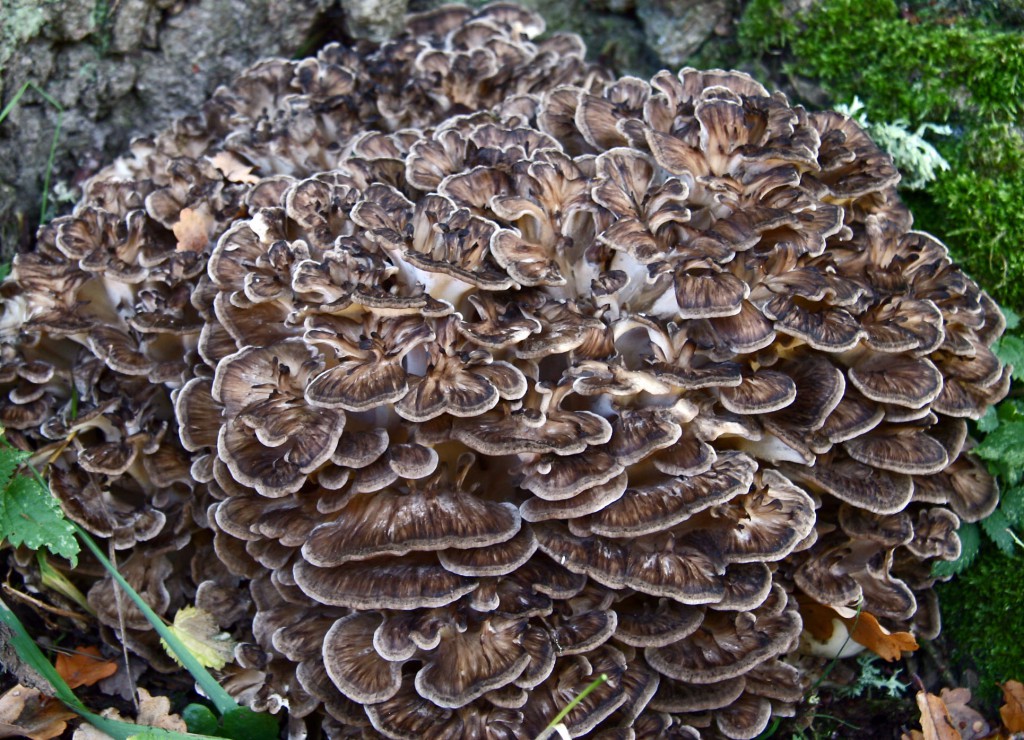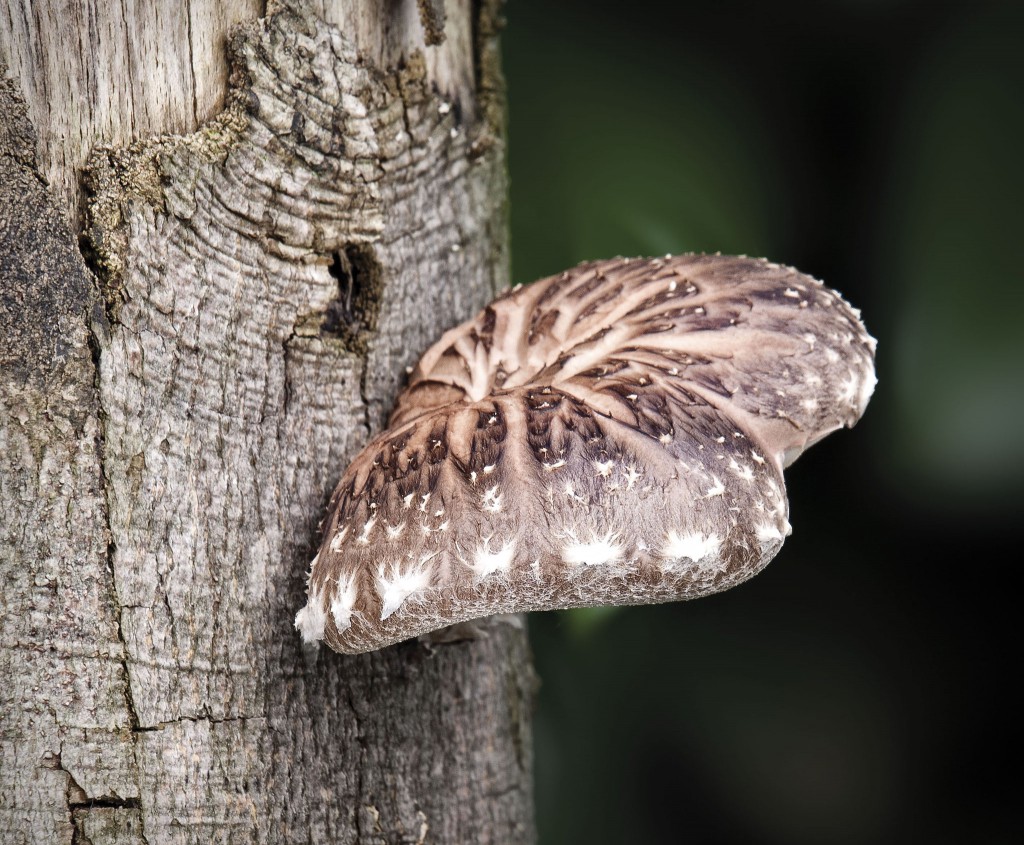Anticancer Compounds of Mushrooms
Medicinal mushrooms contain thousands of compounds. Many have anticancer properties:
- primarily fungal beta-glucans (a type of high molecular weight polysaccharides; examples include lentinan, grifolan, and GL-1), but also
- polysaccharide peptides (e.g. PSP, PSK),
- glycans (ganoderans A, B, and C),
- proteoglycans (maitake D-fraction, etc.),
- triterpenes and triterpenoids (ganoderic acids, etc.)
- protein-bound polysaccharides,
- lignins, purines, polyphenols (esp. flavonoids), etc.
The anticancer effect is primarily the result of boosting the immune system (which makes the body fight cancer more efficiently), but also direct cytotoxic/cytostatic activity and influencing tumor cell metabolism and division.
Chihara et al. were the first to isolate lentinan (and several other anticancer substances) from shiitake (Lentinus edodes) in 1970. They found that beta-glucan called lentinan inhibits sarcoma 180 with 90-100% effectiveness and leads to its complete regression. Lentinan is an official antitumor drug in Japan since 1985.
Additionally, powerful anticancer compounds have been discovered in the mycelium of some mushrooms, such as KS-2 and LEM from shiitake.
Another potent and safe compound is PSK (Krestin), a polysaccharide-peptide from Trametes versicolor (=Coriolus versicolor). Registered as a drug for treating several types of cancer in Japan in 1977, it is the best-selling anticancer drug in Japan (in 1987 it was the 9th most-sold drug in the World).

Medicinal Mushrooms and Metastasis
Some medicinal mushroom compounds inhibit and slow down the development of both primary tumors and metastases. Sometimes, they lead to metastatic reduction and even complete regression. Dr. Chihara (National Cancer Centre Japan) proved this for lentinan and Dr. Hiroaki Nanba (Kobe Pharmaceutical University) for maitake D-fraction from Grifola frondosa (maitake; Hen of the Woods mushroom).

Many other medicinal mushrooms exhibit similar effects. Aside from the usual host-mediated immunity and direct cytotoxic mechanisms, some compounds suppress tumor tissue vascularization, limiting the nutrients the tumor cells get and making their spreading more difficult.
Numerous scientific studies have shown that medicinal mushroom metabolites block or modulate all of the processes connected with the 8 steps of carcinogenesis.
In 2012, Petrova et al. has shown that Ganoderma lucidum (reishi) contains biologically active metabolites that can influence all of these processes.
Image sources:
Flickr:: Luc De Leeuw (Trametes versicolor, turkey tail), caspar s (Grifola frondosa, maitake)

